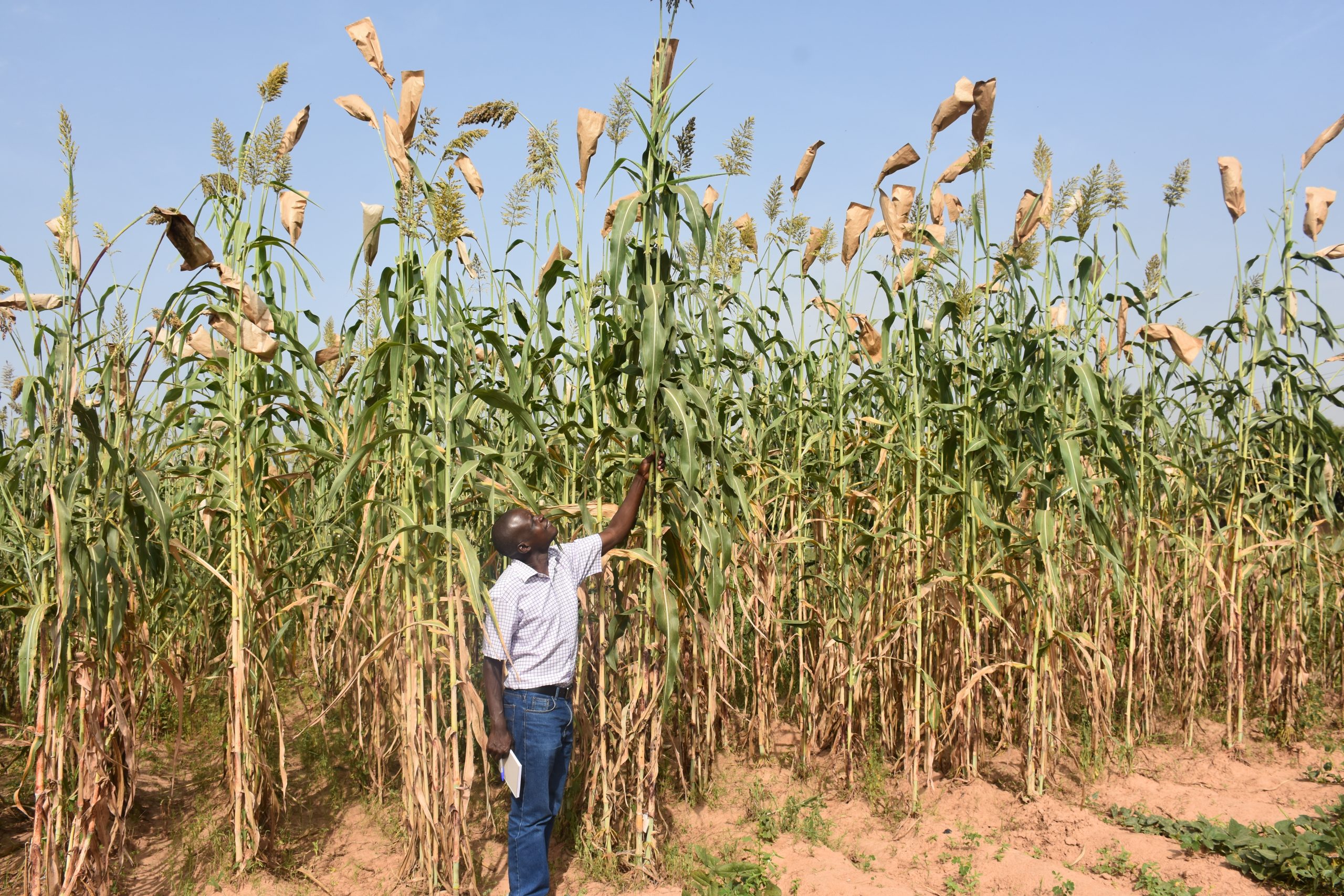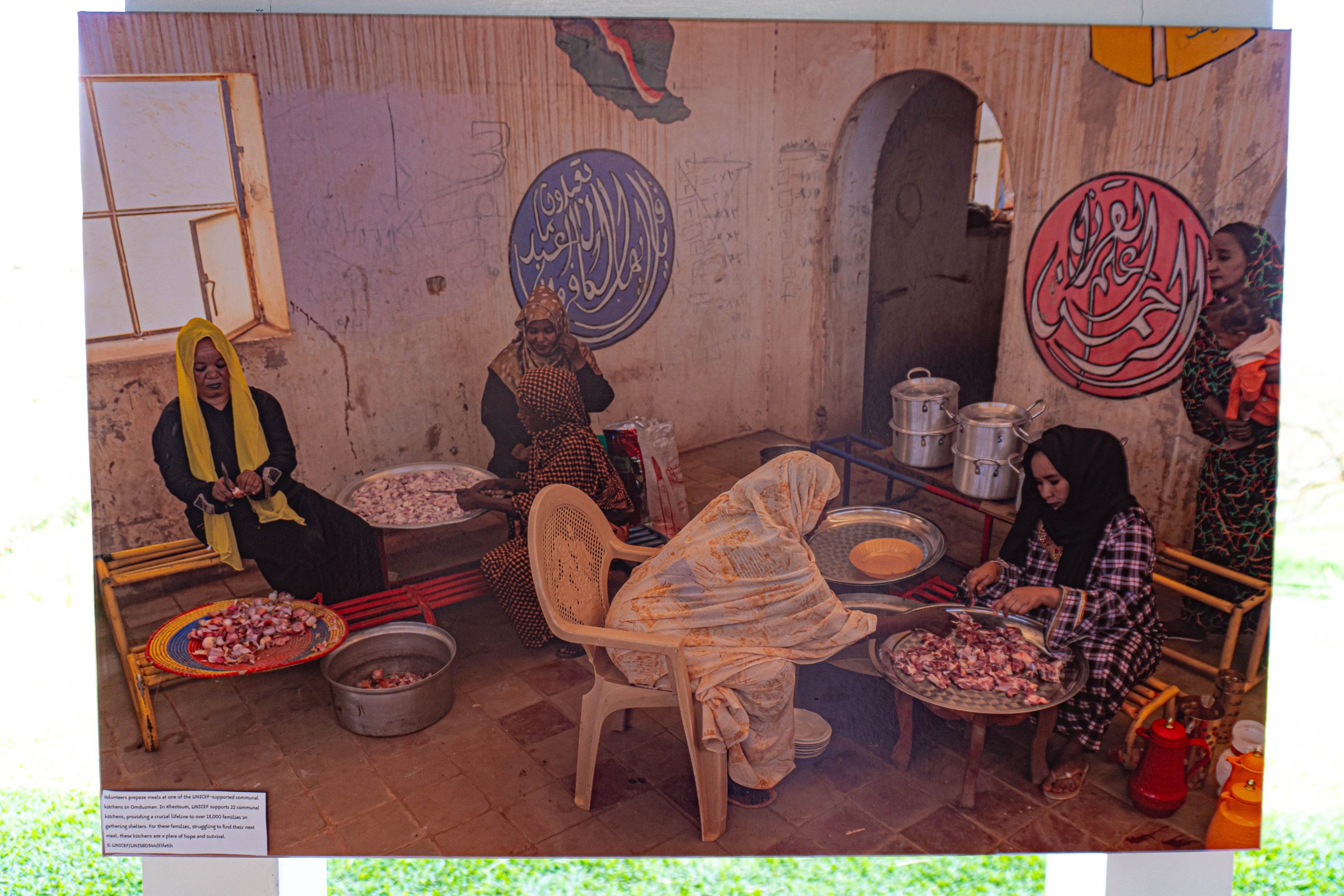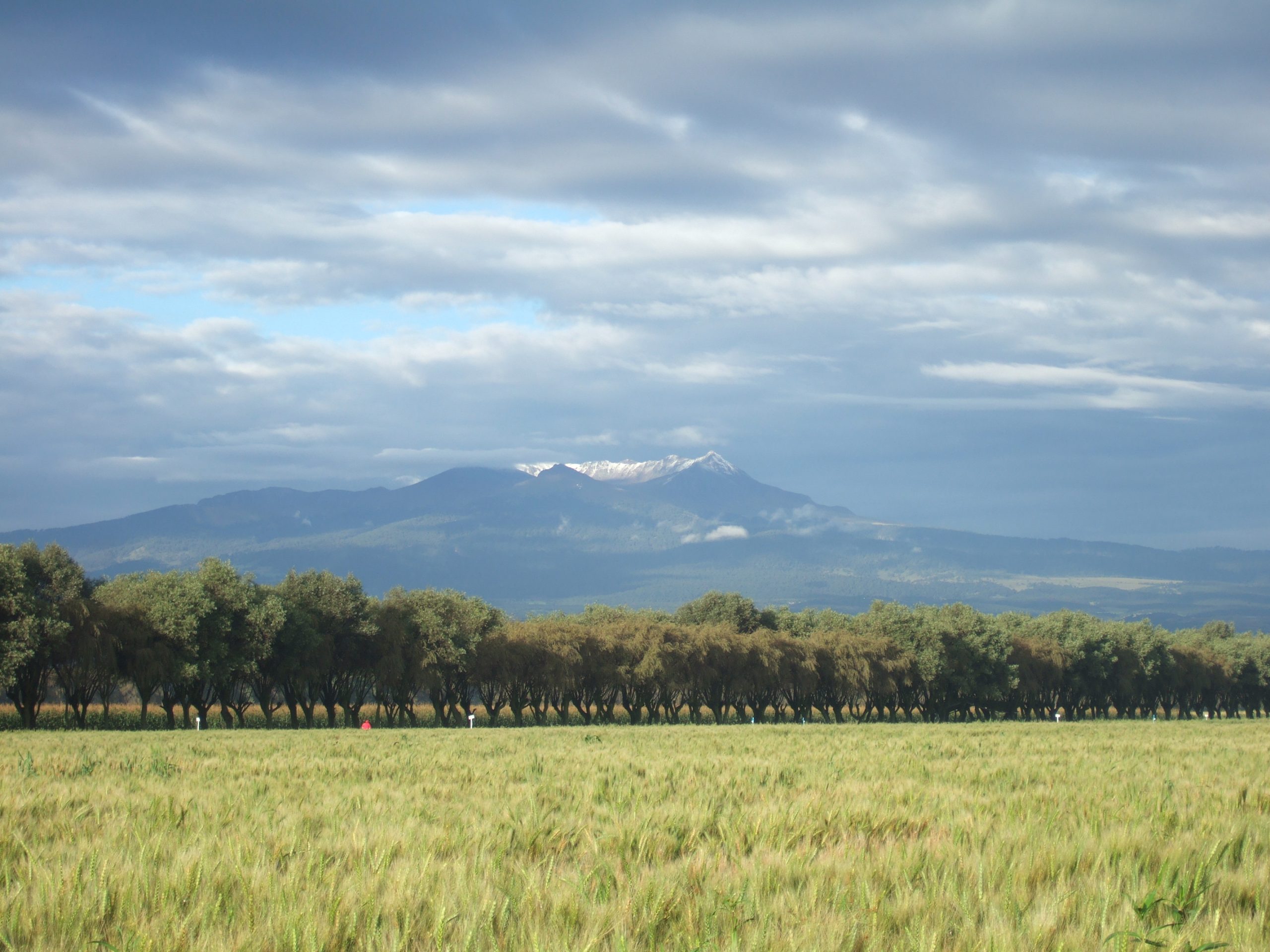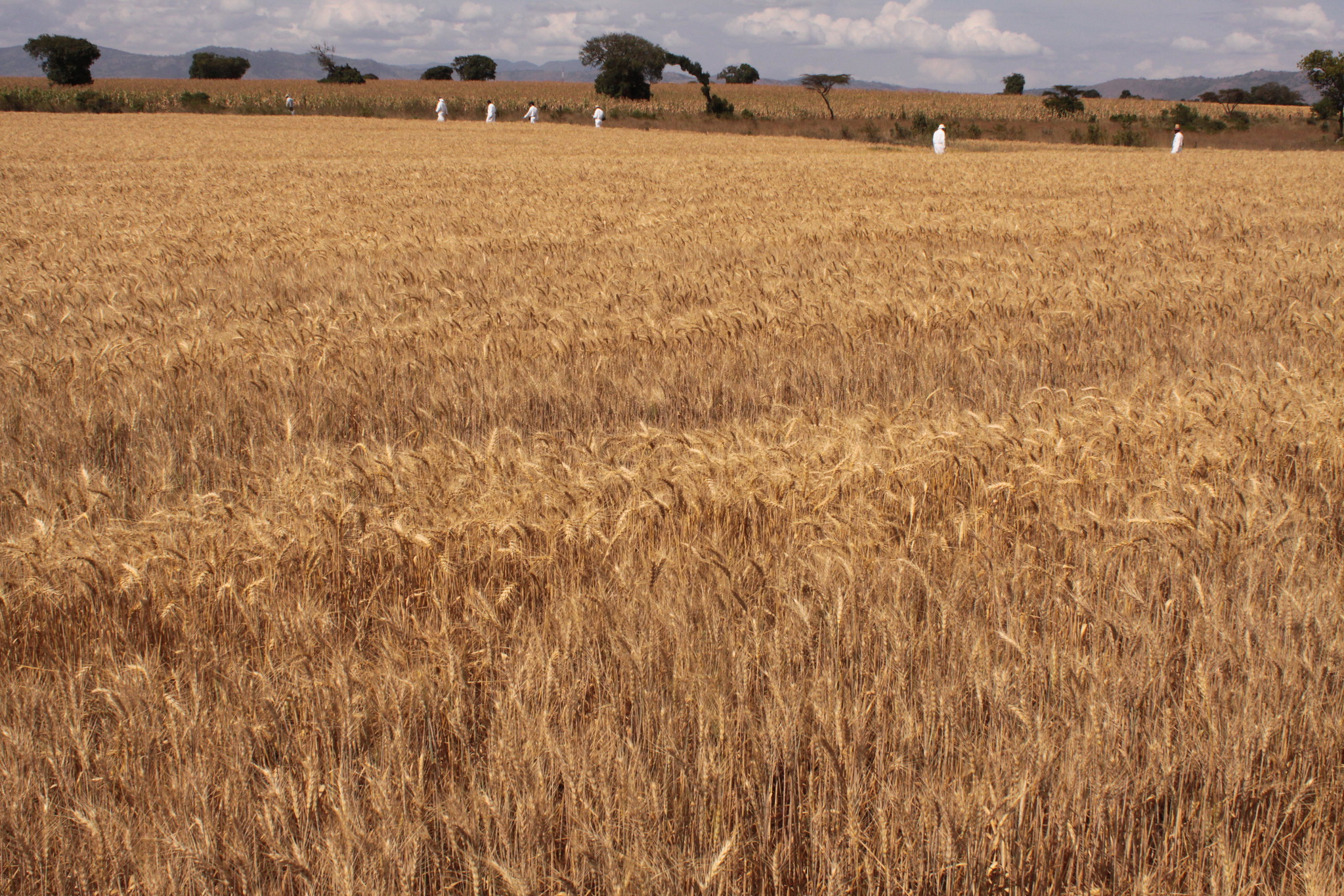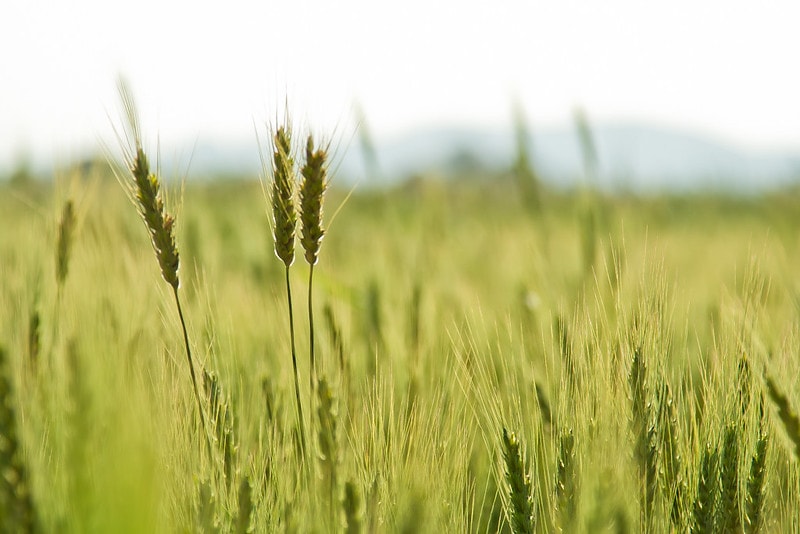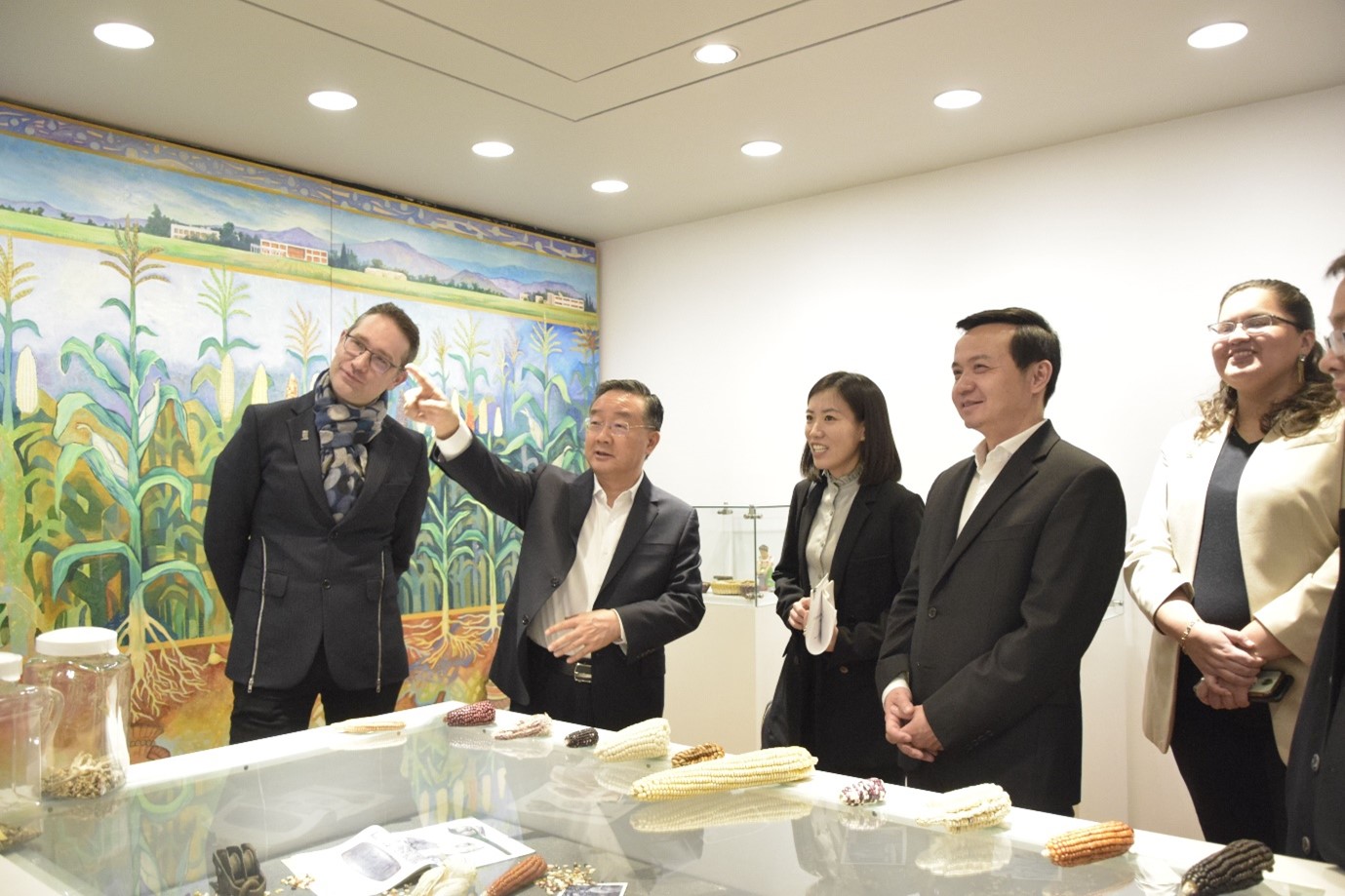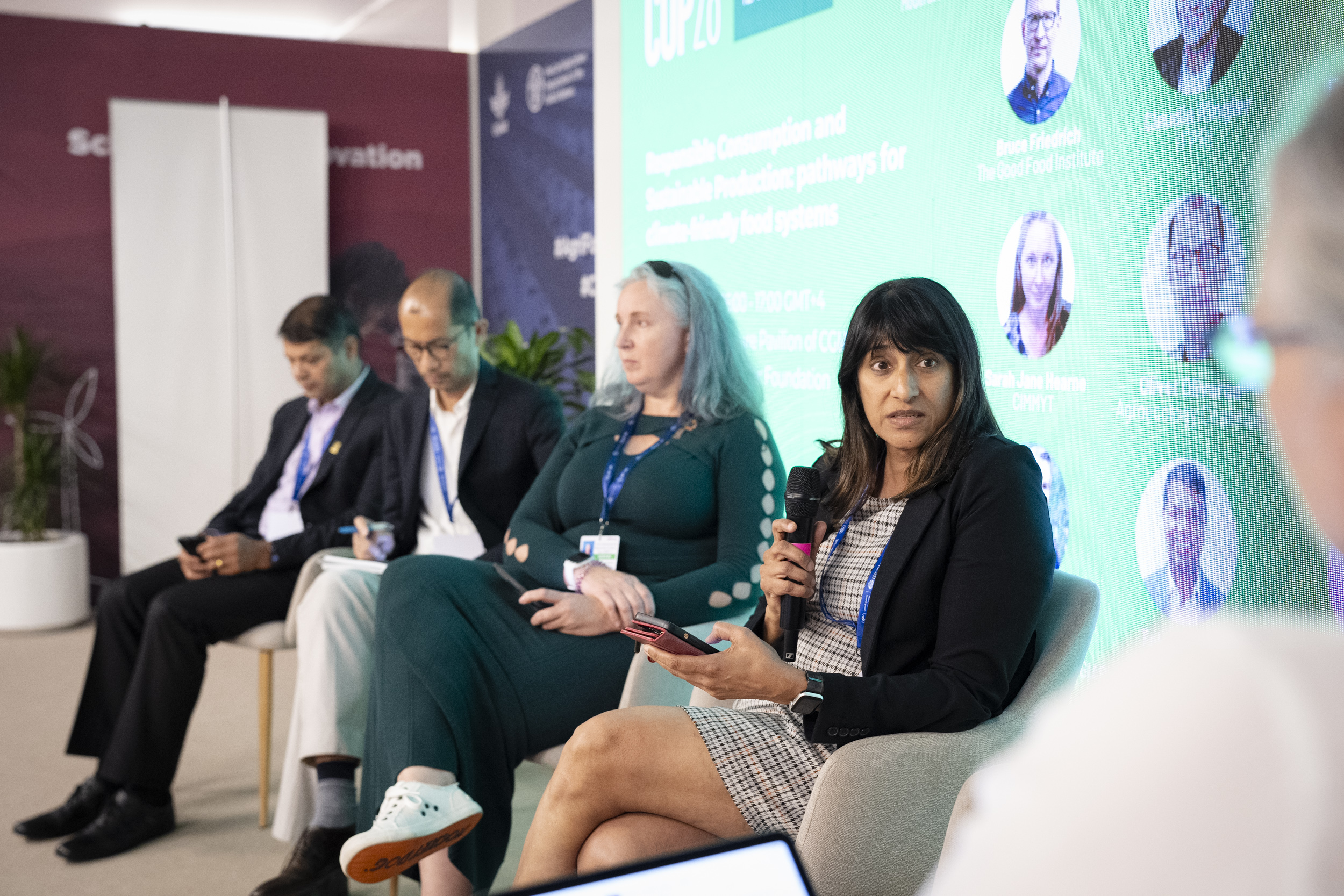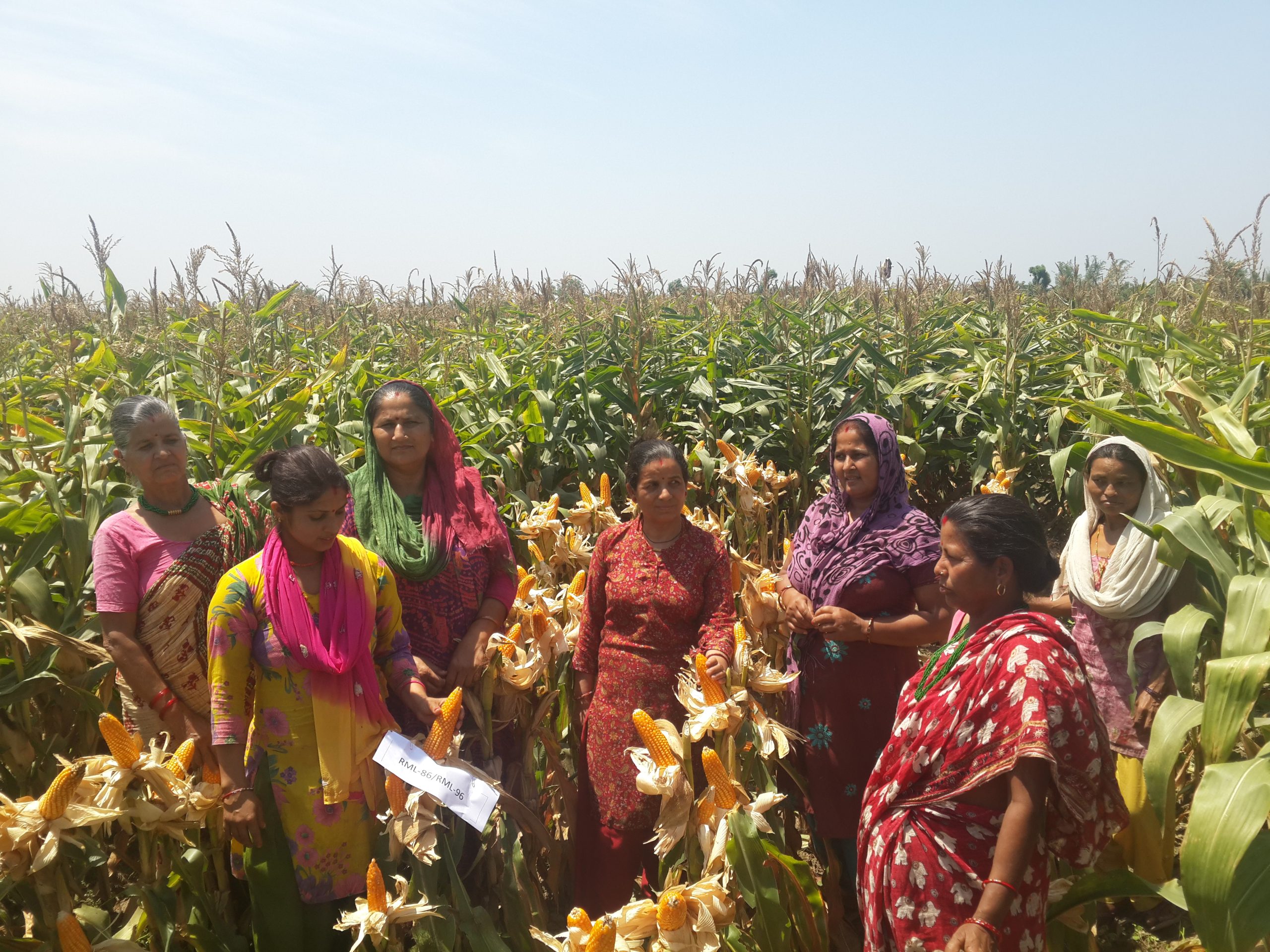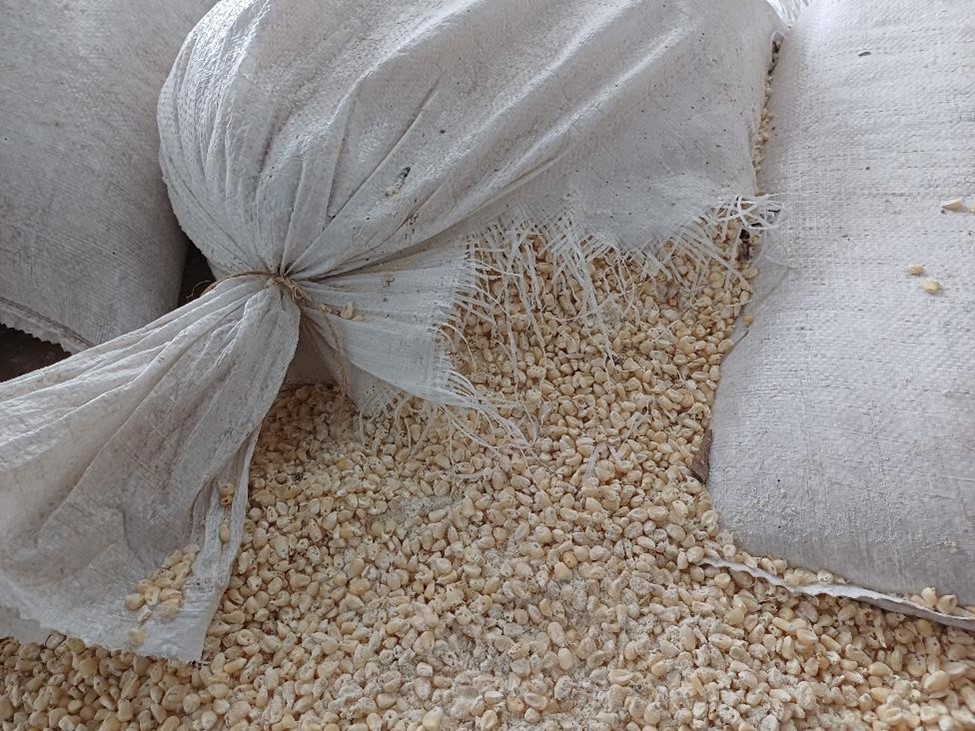Genetic resources
G7 summit highlights importance of sustainable food systems
 Climate adaptation and mitigation
Climate adaptation and mitigation
CIMMYT contributes to the G7 goals on agricultural productivity, food security, and climate change through the Vision for Adapted Crops and Soils initiative.
CIMMYT calls for direct agricultural investment to address Sudan’s food crisis
 Climate adaptation and mitigation
Climate adaptation and mitigation
CIMMYT proposes actions to respond to the deteriorating food crisis catalyzed by the ongoing civil war in Sudan.
MARA-CIMMYT Joint Laboratory hosts CGIAR delegation
 Environmental health and biodiversity
Environmental health and biodiversity
The MARA-CIMMYT Joint Laboratory, hosted by Chinese Academy of Agricultural Sciences (CAAS), welcomed a delegation of CGIAR directors on genetic innovation and resources.
Advancing wheat breeding through rapid marker-selectable trait introgression
 Innovations
Innovations
CIMMYT’s commitment to excellence and precision is exemplified in the AGG WHEAT marker-selectable trait introgression. The journey from concept to reality—marked by the entry of 97 F5 lines into yield trials—signals a new era in wheat breeding.
East African wheat breeding pipeline and E&SSA network
 Climate adaptation and mitigation
Climate adaptation and mitigation
Genetic trials in the region will continue throughout 2024 and 2025 to establish a baseline for genetic gains and to enable the assessment of the breeding pipeline’s progress in the coming years.
Enhancing wheat breeding efficiency in South Asia through early germplasm access
 Environmental health and biodiversity
Environmental health and biodiversity
Success stories witnessed in India, Pakistan, and Nepal underscore the transformative potential of this approach, offering a beacon of hope for agricultural communities in South Asia and beyond.
Building on fifty years of collaboration, a visit by Chinese politicians to CIMMYT in Mexico breeds new opportunities for tackling global agricultural challenges
 Innovations
Innovations
Building on fifty years of collaboration, a visit by Chinese politicians to CIMMYT in Mexico breeds new opportunities for tackling global agricultural challenges.
CIMMYT joins global efforts to curb greenhouse emissions and strengthen food systems
 Climate adaptation and mitigation
Climate adaptation and mitigation
CIMMYT promoted ways to lessen climate shocks, especially for smallholder farmers who inordinately suffer the effects of climate change, including rising temperatures and extended droughts.
Will plants ever fertilize themselves?
 Capacity development
Capacity development
Source: The New Yorker ()
Researchers, including Sieg Snapp from CIMMYT, are pioneering crops that fertilize themselves by harnessing atmospheric nitrogen.
Heat tolerant maize hybrids: a pursuit to strengthen food security in South Asia
 Climate adaptation and mitigation
Climate adaptation and mitigation
CIMMYT’s systematic and targeted breeding strategy in South Asia helped develop 20 high yielding and heat-stress tolerant maize hybrids. The ongoing efforts strengthens the livelihood of farm families who are highly vulnerable to climate change in the Asian tropics.
Examining how insects spread toxic fungi
 Climate adaptation and mitigation
Climate adaptation and mitigation
CIMMYT leads international collaboration to monitor invasive pests attacking post-harvest crops and the propagation of toxic fungi.
